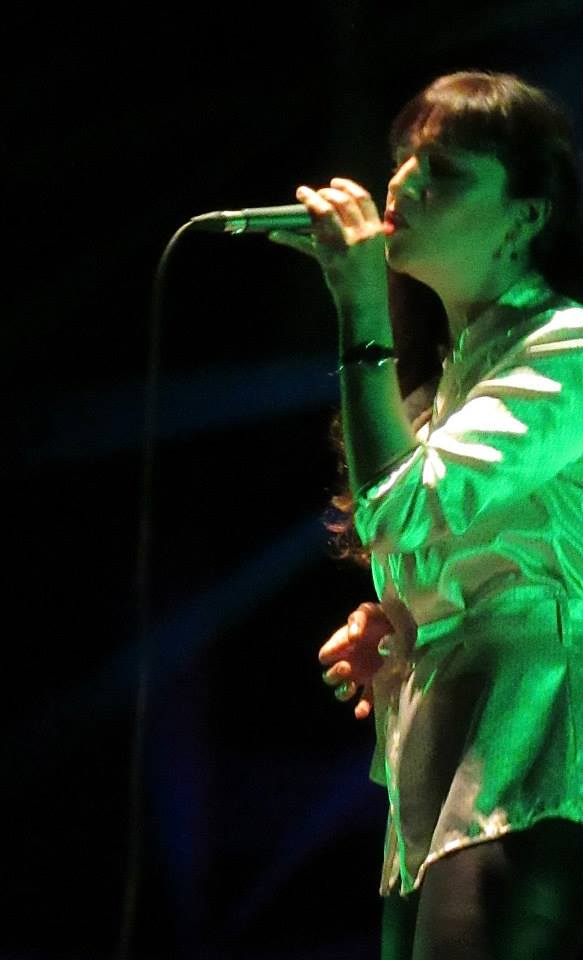When Karina Beorlegui alternates between tango and fado, she discerns a unity deeper than the obvious affinities and plays with something more than complementarity or contrast. Going from one to the other feels more like rounding a bend in the lane than switching to a parallel road. She gives voice to the shared historical drama of two port cities, Buenos Aires and Lisbon, and to the dramatis personae who have come and gone through their docks, departed, stayed behind, or returned. It is a world almost Dickensian, its novelistic sweep all the greater in that it encompasses two peoples and the ocean between them: the carriage driver and beloved horses of “Mano blanca,” “Amor sem casa” with its windborne love, the dalliances of sailors ashore in “Mañana zarpa un barco.”
The theatrically trained Beorlegui has more than just a knack for world-making: the care and precision of her enunciation, a feel for character, setting, motivation, a zest for storytelling that reveals itself in gesture, vocal playfulness, and dramatic continuity. The techniques of physical theater are ever present in her work, exercised, with perfect simplicity, in impish, rather eccentric movements, some mimetic, others abstract, a few out-of the-blue: her hand twirling aloft as though waving a flag, twinkling her fingers to the music like the pattering of raindrops, using her hand as a visor in an imagined scene at the races, even at one point an Indian dance pose. Her voice, too, is rich and supple, with perfectly placed moments, usually at the end of songs, of flourish and even corniness: blowing air through her lips like bubbles through water, distorting a sound as though overcoming a defect in speech, accentuating the irony of a slang term or the savoir-faire of a character.
Beorlegui sprinkles her banter with bits and pieces of history and musicology, reminding us that tango and fado arose in the same historical period, that Iberian and Brazilian Portuguese have a different sound (and of the language’s similarity to Galician), of the roles played by Carlos Gardel and Amália Rodrigues in popularizing the genres and spreading them globally. With her sharp bangs, sprightly presence, and clever eyes, she could not, herself, be a better ambassador for the two genres. I can’t say how accented, if at all, her Portuguese is, but no singer I know of has pulled the two together in so seamless and original a fashion.
That is as true if not truer of her as a live performer as it is of her recordings, in both cases with the instrumental collaboration of Los Primos Gabino. There is never, in the house of her music, a song that feels as though it “would work better over there,” nothing nice on its own that clashes with the one next to it. She is, above all, deeply moving, whether the emotion be light or heavy, a master of flow amid the great variety of her art. She is worth hearing simply as a tango singer, but it is in the consonance of the two genres that she has built her home. In August and September in Buenos Aires she hosts her Fado-Tango Club and in November an international festival of the two. I should not miss either if I were there.
For more on Karina Beorlegui, visit her here.

One response to “Karina Beorlegui”
[…] knew from seeing her a year ago that Karina Beorlegui can be streetwise and a little punky. Now I know that she can be supremely […]